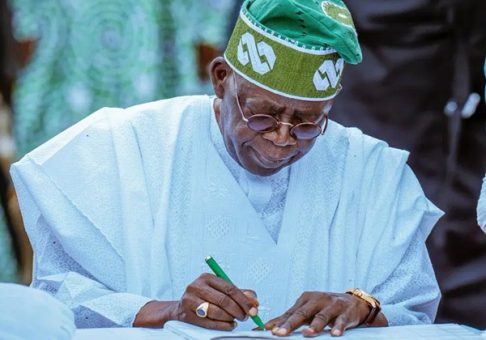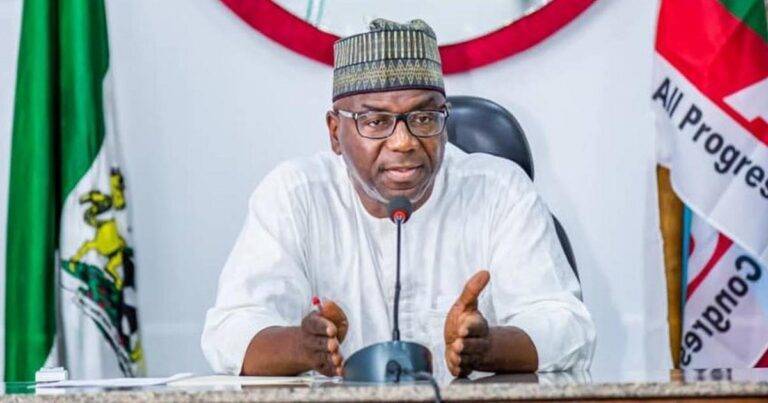Sex scandal: Equatorial Guinea’s anti-graft boss, Engonga, fired from office

The President of Equatorial Guinea, Obiang Nguema Mbasogo, has reportedly fired the Director General of the National Financial Investigation Agency (ANIF), Baltasar Ebang Engonga, following a shocking discovery of 400 sextapes involving him and several other women.
The President also appointed Zenón Obiang Obiang Avomo as the new Director of the Agency.
The change in leadership was disclosed in a news report on Thursday by a media outlet based in Equatorial Guinea, Ahora EG.
Also, according to another local news platform, Real Equatorial Guinea, the President fired Engonga for “irregularities committed in the exercise of his functions, as well as inappropriate family and social conduct for the performance of public functions, as stated in Decree number 118/2024, dated November 4.”
The change follows Engonga’s arrest amid allegations that he recorded over 400 explicit videos involving the wives of prominent figures in Equatorial Guinea.
The discovery of the videos reportedly occurred during an impromptu search by ANIF officials investigating financial irregularities tied to Engonga, a well-known economist.
“Zenón Obiang Obiang Avomo holds a law degree from the National University of Equatorial Guinea (UNGE). He has previously held various positions, including Magistrate Judge of the Institution of Malabo, Director General of Contract Studies and State Markets at the Ministry of Finance and Budgets, Secretary General of the Ministry of Finance, Economy and Planning, and Secretary General of Mines, Industry and Energy,” Ahora EG reports.
Authorities uncovered over 400 sex tapes involving Engonga and several women, including the wives of high-profile figures such as ministers, police officials, and even the sister of the President.
The tapes, which were allegedly filmed with the women’s consent, were discovered during a raid on Engonga’s office and later leaked online, causing public outrage.
This prompted the government to introduce strict measures, including suspending officials involved in similar misconduct and installing surveillance cameras in government offices to prevent further ethical violations.
The government had earlier ordered the installation of security cameras in all state offices to avert further misconduct and ensure strict adherence to ethical standards in public service.






